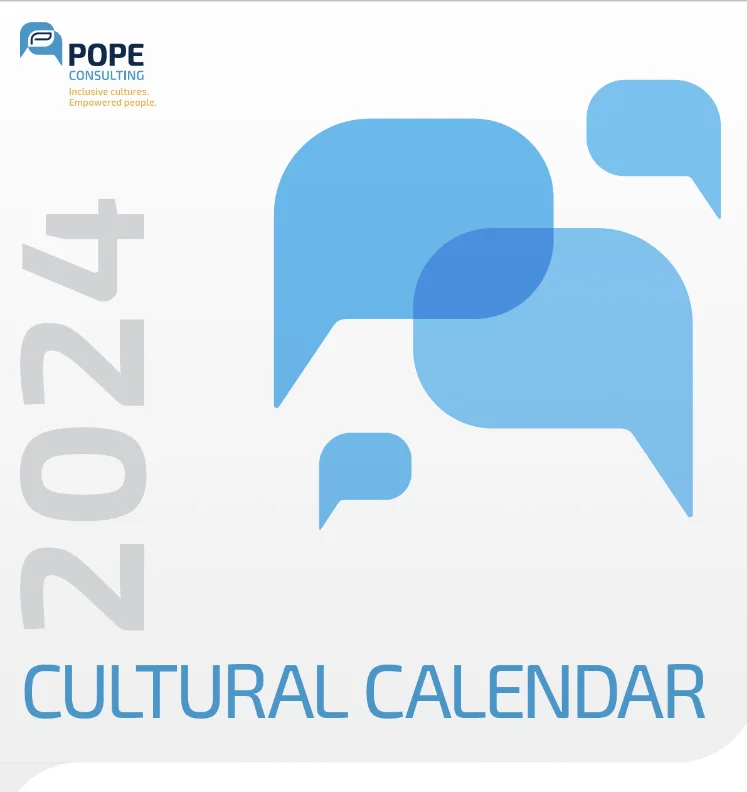As someone who has spent the majority of my work life in the Diversity, Equity & Inclusion field, the terminology has certainly expanded over the last five decades. At times, some have suggested that they’re confused by or tired of the buzzwords associated with this work.
My personal journey began one weekend in 1977. My husband, Merlin G. Pope, Jr., and I sat down to create our first brochure. We had a dictionary, a thesaurus, and a bunch of Peter Drucker books on our coffee table. We were brainstorming like crazy and scanning through the resources on our table for ideas. Suddenly, in one of Drucker’s books he used the word ‘diversity’ – but not in the context of people. Merlin said, “That’s it! It’s about learning how to manage the diverse workforce!” We called our session for leaders “Leading a Diverse Workforce,” the session for supervisors/managers, “Managing Personnel Diversity,” and the one for individual contributors, “Enhancing Work Relationships.”
About a decade later, a client called and asked if there was a ‘new word’ for diversity. It seemed the managers in that organization were ready to call it something different. We gave it serious thought but couldn’t come up with a better word to describe the differences among people in the workplace.
In our early years of doing this work, the primary focus began with race and then evolved to include gender in response to Affirmative Action. Since then, the language has continued to evolve and add meaning to the work that so many dedicated professionals and committed organizations do. Today, people from different backgrounds talk more openly about differences related to their nationality, ethnicity, sexual orientation, gender identity, religious beliefs/practices, physical and mental abilities, socio-economic backgrounds, etc. Almost 50 years later, the word diversity has stood the test of time.
For me, the relatively new term that I’ve been struggling to understand is “Belonging.” I couldn’t figure out what it was about this new word that we hear so often now that didn’t take me back to the word ‘inclusion.’ If someone feels that they really ‘belong’ in the organization, isn’t that the same as saying they feel included?
Recently, I took a walk after dinner and was thinking about how much I love the neighborhood that I moved into almost two years ago. There is something different here from any place else I’ve ever lived. I’ve been fortunate that there have always been nice people everywhere I’ve lived. Everyone waved at each other and if you needed some help or to borrow something, no problem. Occasionally, someone would have a get-together for the neighbors. But my experience here is different than that.
The difference is relationships. We do things together on a regular basis, and we keep finding new things to do. And I feel that I belong. That’s why this is a different experience for me.
I was a relatively young woman when my husband died. Our sons were 10 and 15. This made me very different compared to all of our neighbors. In the last 25 years, I’ve moved several times. While there has always been some degree of diversity, my primary focus at first tends to be how different I am compared to everyone else. I imagine others do this too in other ways, i.e., those who are divorced, single, or a gay couple. The only couple without kids in a younger, family-oriented neighborhood, or someone with a disability.
When I recently had my big ‘ah-ha’ moment about ‘belonging,’ I thought about this within the context of Diversity, Equity, and Inclusion in the workplace.
- The ‘Diversity’ element is that while I’m still the only widow, there are other types of differences that are present here. As a newer neighborhood, no one on our street has lived here longer than 3 years. Most of us are originally from other states, and several were born in other countries. Most are retired, while some (like me) still work.
- In terms of ‘Equity,’ everyone receives fair treatment in terms of being able to live here and how the HOA treats homeowners.
- A few months after I moved in last year, one couple took the initiative to host a get-together for everyone who lives on our street. It was a BYOB, from 5:30-7:00 and they provided pizza. They followed up with an email providing everyone’s contact info and asked for volunteers who would like to host at their home.
Not a month has gone by since then without someone on the street hosting a get-together. My insightful neighbors created a structure for ‘Inclusion’ to occur on our street. Someone had to lead it. Organizations do this too when they establish a ‘buddy” system for each new hire or create a formalized mentoring process for high potentials of all backgrounds.
- This analogy continued to build in my mind as I walked. Our get-togethers opened the door to doing more things together in smaller groups, like women going out to lunch or dinner together, playing Pickleball, taking walks, attending charitable events, etc. But where did ‘Belonging’ fit in this comparison to organizations?
I don’t think organizations can EDICT belonging. People have to be consistently proactive in reaching out to those who are new because that’s how we communicate that we want to get to know them. And those who want to belong have to accept the invitations. This is different than appointing someone to invite the new hire to have lunch their first week, and then everyone goes back to having lunch with their regular lunch group.
How do I know that I belong here? Because for the first time, I can’t imagine living anywhere else.
Years ago, a client hired a deaf man to work in their manufacturing operation. Several years later, he was offered a better position with a higher rate of pay. He turned it down saying there was no way he would leave his team because they had gone out of their way from Day 1 to ensure that he would be successful despite his disability. As the first deaf person hired, no one knew how to accommodate him. The team figured out on their own how to do this. No one instructed them to make sure that he felt like he belonged. Again, ‘Belonging’ can’t be mandated.
When employees turn down other opportunities and choose to stay because they value that wonderful feeling of ‘belonging’ that they’ve found in your organization – you will know that your employees are doing their part to help create an inclusive culture for everyone.
It took me a while – but I don’t think Belonging is just a buzzword now.
How have others helped you feel that you belong?
 2024 Cultural Calendar
2024 Cultural Calendar


